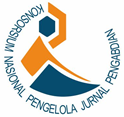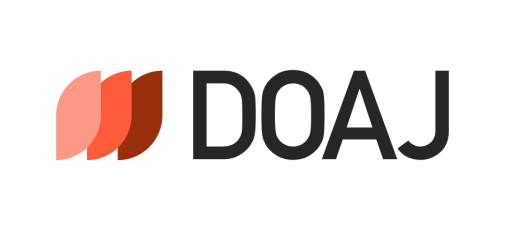Faktor Penentu Kemampuan Mahasiswa dalam Penguasaan Bahasa Inggris
Abstract
Universitas sangat penting dalam mempersiapkan siswa untuk sukses didunia kerja. Hal ini menggambarkan bahwa pelatihan bahasa Inggris di perguruan tinggi juga dimaksudkan untuk menghasilkan lulusan dengan kompetensi bahasa Inggris yang dibutuhkan untuk pekerjaan tertentu (English for Occupational Purpose). Sudah menjadi rahasia umum bahwa mahasiswa yang mendaftar di Program Studi Pendidikan Biologi FKIP UPR memiliki kemampuan bahasa Inggris yang lemah. Oleh karena itu, peneliti memilih 15 mahasiswa untuk dijadikan responden. Penelitian ini berusaha untuk mengetahui faktor-faktor yang mempengaruhi kemahiran bahasa Inggris jurusan Pendidikan Biologi di FKIP UPR. Kuisoner digunakan untuk mengumpulkan data dalam penelitian deskriptif ini. Untuk analisis data menggunakan teknik Tabulasi. Metode ini melibatkan pengolahan data ke dalam format tabel. Terdapat empat variabel yang mempengaruhi kemampuan bahasa Inggris peserta Prodi Pendidikan Biologi, demikian kesimpulan dari penelitian ini. 1) Kemampuan menyimak, dalam hal ini mahasiswa mengalami kesulitan membedakan pengucapan (pronounciation) kata-kata yang didengarnya; 2) Kemampuan berbicara, dalam hal ini persyaratan untuk menggunakan grammar yang benar ketika berbicara dan rasa gugup karena tidak terbiasa berbicara berdampak pada kemampuan mahasiswa; 3) Kemampuan menulis, dimana ketidakmampuan untuk menghasilkan dan mengorganisasikan ide-ide sehingga mempengaruhi kemampuan mahasiswa; 4) Kemampuan membaca, dimana ketidakmampuan untuk memahami isi bacaan sangat mempengaruhi kemampuan mahasiswa.
Kata kunci—English for Occupational Purpose, Keterampilan Berbahasa Inggris, Penguasaan Bahasa Inggris
Abstract
Universities play a crucial role in preparing students to compete in the workforce. This demonstrates that English instruction in higher institutions is also geared toward ensuring that students have the English proficiency required for various occupations (English for Occupational Purpose). It is well recognized that students enrolled in the Biology Education Study Program, FKIP UPR, have limited English proficiency. As a result, 15 students were chosen to participate in the study as respondents. This study seeks to identify the factors that influence the English language proficiency of FKIP UPR Biology Education students. This is a descriptive study for which a questionnaire was utilized to collect data. The tabulation technique is used to analyze the data by transforming the data into tabular format. According to the findings of this study, four factors influence the English language proficiency of Biology Education Study Program students: 1) Listening ability, wherein students have difficulty distinguishing the pronunciation of the words they hear; 2) Speaking ability, wherein the influencing factors are the demand for using proper grammar in speaking and feeling very nervous because they are not used to speaking; 3) Writing ability, wherein what affects students' abilities is the difficulty in developing and compiling ideas; 4) Reading ability, where the inability to understand the content of the reading has a significant impact on students' ability.
Keywords—English for Occupational Purpose, English Language Skills, English Mastery
Full Text:
PDFReferences
Adnan, A. (2012). Pengajaran menyimak bahasa Inggris: Masalah dan solusinya. Lingua Didaktika: Jurnal Bahasa Dan Pembelajaran Bahasa, 6(1), 1–9.
Bailey, K. M. (2020). Teaching listening and speaking in second and foreign language contexts. Bloomsbury Academic. https://doi.org/10.5040/9781350093560
Biring, S. S., Burhanuddin, B., & Achmad, A. K. (2021). Kalimat Imperatif Bahasa Jerman. Phonologie: Journal of Language and Literature, 2(1), 47–52.
Devine, T. G. (2012). Teaching Reading Comprehension from Teaching to Practice. Merril Publishing Diptodadi.
Goh, C. C. M., & Burns, A. (2012). Teaching speaking: A holistic approach. Cambridge University Press.
Grellet, F. (2013). Developing Reading Skill. Cambridge University Press.
Hapsari, I. P., Rozi, F., Farida, L. A., & Wahyuni, R. N. B. (2021). Portfolio Assessment for Improving Unnes Students’ English Speaking Ability. ELTLT 2020: Proceedings of the 9th UNNES Virtual International Conference on English Language Teaching, Literature, and Translation, ELTLT 2020, 14-15 November 2020, Semarang, Indonesia, 1.
Hughes, A. (2020). Testing for language teachers. Cambridge University Press.
Jani, J. S., & Mellinger, M. S. (2015). Beyond “writing to learn”: Factors influencing students’ writing outcomes. Journal of Social Work Education, 51(1), 136–152.
Kurniawati, D. (2015). Studi tentang faktor-faktor penyebab kesulitan belajar menyimak bahasa inggris pada mahasiswa semester iii pbi iain raden intan lampung tahun pelajaran 2015/2016. English Education: Jurnal Tadris Bahasa Inggris, 8(1), 157–178. https://doi.org/https://doi.org/10.24042/ee-jtbi.v8i1.515
Lawtie. (2014). Problems During Speaking Activities in the Classroom cited in “Teaching Speaking Skills 2- Overcoming Classroom at 76. http://www.teachingenglish.org.uk/think/speak/speak_skills2.shtml.
Nemtchinova, E. (2020). Teaching Listening, Revised Edition. ELT Development Series. ERIC.
Newton, J. M., & Nation, I. S. P. (2020). Teaching ESL/EFL listening and speaking. Routledge. https://doi.org/10.4324/9780429203114
Paradewari, D. S. (2017). Investigating students’ self-efficacy of public speaking. International Journal of Education and Research, 5(10), 97–105.
Sutrisno. (2021). Improvement Of Human Resources Competence With Academic Quality Policy In The Economic Sector Of Higher Education Providers In East Java. Transformational Language, Literature, and Technology Overview in Learning (TRANSTOOL), 1(1), 19–28. https://doi.org/https://doi.org/10.55047/transtool.v1i1.104
Tamrin, A. F., & Yanti, Y. (2019). Peningkatan keterampilan bahasa Inggris masyarakat pegunungan di Desa Betao Kabupaten Sidrap. Transformasi: Jurnal Pengabdian Masyarakat, 15(2). https://doi.org/10.20414/transformasi.v15i2.1673
DOI: http://dx.doi.org/10.17977/um045v5i3p173
Refbacks
- There are currently no refbacks.
Email: karinov@um.ac.id

This work is licensed under a Creative Commons Attribution-ShareAlike 4.0 International License.
Find Jurnal Karinov at:










